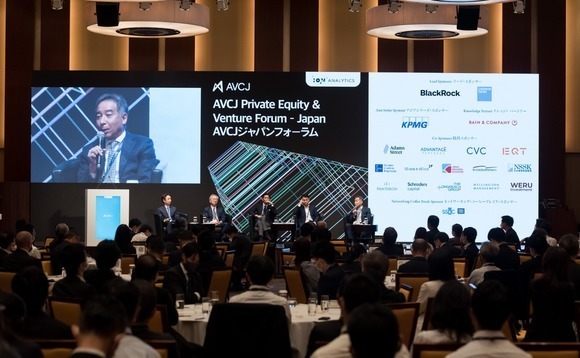
Currency, exit, labour issues worry Japanese GPs - AVCJ Forum

Currency depreciation, dwindling domestic IPO opportunities, and labour shortages are all their toll on the portfolios of middle-market Japanese private equity firms, the AVCJ Japan Forum heard.
Megumi Kiyozuka, president and representative director of CLSA Capital Partners (CLSA CP) in Japan, noted that the yen's plunge from JPY 155 to the dollar at the start of the year to JPY 144 has negatively impacted overseas investors in his funds, although valuations for new deals have become more attractive in US dollar terms. Other macro pressures such as rising inflation are less of an issue.
However, market volatility did cause CLSA CP to postpone an IPO for one of its portfolio companies, and the GP has no idea when the process might get back on track. Concerns about public market exits were echoed by Reijiro Yamamoto, representative director and founding partner of Integral Corporation, who described the IPO market as "so tough" and advocated exploring M&A options.
Meanwhile, pandemic-driven lockdowns in China and yen depreciation have hit one-quarter of the Phronesis Partners portfolio, said CEO Tomoya Shiraishi. This has pushed up the cost of raw materials and companies have not been able to pass on the full effect to customers through higher prices.
T.J. Kono, a partner at Unison Capital, highlighted cost pressures arising from Japan's labour shortage. This was a constraint to growth for many companies pre-pandemic, but it has recently re-emerged with greater intensity. Digitalisation and automation are among the solutions being explored by Unison, he added.
These macro dynamics represent an investment opportunity as well as a problem, with CLSA now deliberately targeting businesses that address digitalisation, labour shortages, and Japan's underserved welfare system.
"Such companies are likely to achieve considerable growth, with limited downside risk, and will be highly valued at the point of IPO or trade sale exit," Kiyozuka explained.
Unison's approach to deal-sourcing is increasingly driven by knowledge and insights gleaned from elsewhere in the portfolio. For example, experience running a pharmaceutical manufacturer can be useful when looking at hospitals, home nursing services, and even dentistry, Kono said.
"If you narrow down focus areas, you can see targets more clearly," he added.
Latest News
Asian GPs slow implementation of ESG policies - survey
Asia-based private equity firms are assigning more dedicated resources to environment, social, and governance (ESG) programmes, but policy changes have slowed in the past 12 months, in part due to concerns raised internally and by LPs, according to a...
Singapore fintech start-up LXA gets $10m seed round
New Enterprise Associates (NEA) has led a USD 10m seed round for Singapore’s LXA, a financial technology start-up launched by a former Asia senior executive at The Blackstone Group.
India's InCred announces $60m round, claims unicorn status
Indian non-bank lender InCred Financial Services said it has received INR 5bn (USD 60m) at a valuation of at least USD 1bn from unnamed investors including “a global private equity fund.”
Insight leads $50m round for Australia's Roller
Insight Partners has led a USD 50m round for Australia’s Roller, a venue management software provider specializing in family fun parks.








